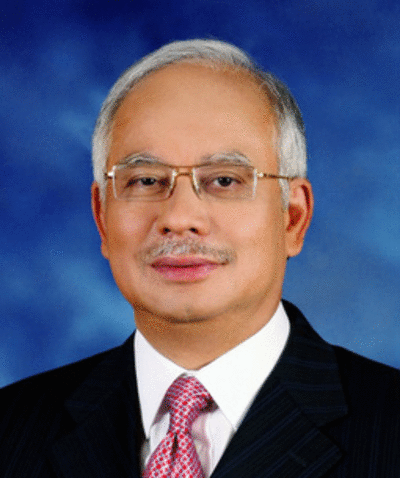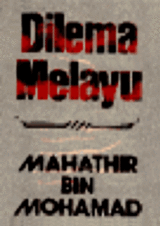 By Zubaidah Abu Bakar
By Zubaidah Abu BakarThat Malaysia's conservative Parti Islam SeMalaysia is not compromising on its agenda to implement the syariah criminal laws (hudud and qisas) and set up an Islamic state is clear.
The irony is its allies in Pakatan Rakyat do not seem to mind, as long as PAS does not propound such ideals on the coalition's platform.
It is difficult to fathom how long this "agreement" can last, given the sensitivity of the issue among Malaysians and most crucially, the strong opposition of Pas' allies DAP and a non-supportive Parti Keadilan Rakyat.
The dissimilar aims and ideologies of Pakatan partners have seen this sensitive issue spark controversy from time to time, threatening the fragile alliance.
Pas and the socialist DAP have long been at loggerheads over Islamic-state issues; at the height of their crisis, the latter left "Barisan Alterntif", the electoral pact the two parties formed with PKR to contest the 1999 general election, in 2001 over Pas' insistence on an Islamic theocracy.
There was much ado over hudud barely a year after Pakatan Rakyat was cobbled together after the March 2008 general election, causing a round of debate between Pas and DAP leaders during the Kuala Terengganu by-election.
The hudud issue cropped up in late December 2008, after then Pas vice-president Datuk Husam Musa said the party had never forgotten its struggle to bring about an Islamic administration in the country, including implementing hudud if the opposition alliance came to power.
It rocked Pakatan Rakyat when DAP chairman Karpal Singh, the most vocal critic of such laws, a few weeks later threatened that his party would withdraw from the alliance. Karpal's argument was that hudud was neither among DAP's principles nor contained in the Pakatan Rakyat's 2008 general election manifesto.
Most recently, the debate was renewed by a call from Pas spiritual leader Datuk Nik Abdul Aziz Nik Mat to implement hudud laws to rein in cases of baby dumping and other social problems.
Again, Karpal rose to oppose -- arguments were exchanged and eventually Pakatan's senior leaders issued a joint statement that the Common Policy Framework (CPF) agreed in December last year would be adhered to by Pakatan components.
A Pas official said the three parties collectively agreed to stick to the CPF and focus on unseating Barisan Nasional at the federal level for now.
"Pas will promote its agenda on its own," he said. "It will not use the Pakatan platform."
Pakatan leaders believe this arrangement will be workable if the partners stick to the tripartite alliance's common denominator, the CPF, where provisions for hudud were never agreed on or outlined.
Pas central committee member and Kuala Selangor member of parliament Dr Dzulkifly Ahmad reminded his party leaders that they could not use the Pakatan platform to spread hudud as it was against the spirit of the CPF.
"While we in Pas have a right to advocate our beliefs on our own platform, we cannot do it on a Pakatan platform," he had remarked.
Pas remains steadfast with its belief that Malaysia should have an Islamic government, given its Muslim majority. The party didn't waste much time formulating hudud in Kelantan and Terengganu state laws once it got the chance.
The Kelantan legislative assembly passed an enactment encompassing hudud in 1993. Similar legislation was enacted in Terengganu in 2002, when the state was ruled by Pas.
Although hudud has not been enforced in either state as it runs contrary to the Federal Constitution, there is genuine fear among Muslims and non-Muslims alike that the country might slide into a Taliban-style theocracy should Pas achieve its objective.
Some are thankful that Pas alone cannot push to realise its dream -- at least not in the near future -- without the support of its allies. But at the same time, most Malaysians are aware that any law is difficult to repeal once passed, and there is no stopping Pas implementing hudud if it gets the power to do so.
Yet, many Pas leaders, like Datuk Seri Azizan Razak, are realistic and cautious in handling the contentious issue, especially with the party striving to break away from its conservative image to appeal to non-Malays and Muslim moderates.
Soon after he was sworn in as Kedah menteri besar in 2008, Azizan, in an interview with the New Straits Times, was quick to dismiss fears of any attempt to enforce Islamic laws and regulations in Pas' newly acquired power base.
Pas, he said, had no immediate plan to introduce syariah and regulations in the Malay-belt state. "No Taliban-style government," he had said, explaining that Islamic laws and regulations would only be introduced in Kedah when non-Muslims fully understood Islam.
Under hudud, theft, robbery, illicit sex, alcohol consumption and apostasy are considered corporal offences, to be punished by whipping, stoning to death and amputation of limbs.
Accusations of illicit sex, which cannot be proved by four witnesses or qazaf, would also be an offence.
Qisas, or law of retaliation, refers to offences that involve bodily injuries or loss of life; the punishment is death or imprisonment but compensation in the form of a sum of money and property is accepted if the guardian of the victim forgives the offender.
Both hudud and qisas offences are contained in the Syariah Criminal Code II Enactment 1993 in Kelantan and the Syariah Criminal Offences (Hudud and Qisas) Bill, passed on July 8, 2002 in Terengganu.
Pas leaders like Nik Aziz believe non-Muslims would not be afraid of hudud if they understood the laws and mechanics. "Hudud is for prevention of crime," he said in an interview with the NST. "The punishments are harsh but it's not easy to get a conviction. The standards of evidence are much higher than for the Penal Code."
In hudud, convictions must be beyond the shadow of doubt, unlike in the Penal Code where convictions can be achieved if the case is proven beyond reasonable doubt.
Hudud and Islamic-state issues will remain thorny in Pakatan Rakyat. A misstep could be fatal to the alliance. - New Straits Times
Last Updated (Friday, 03 September 2010 12:21)

 THE PRIME MINISTER OF
THE PRIME MINISTER OF 















.jpg)















































































No comments:
Post a Comment